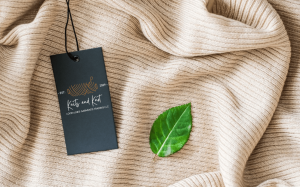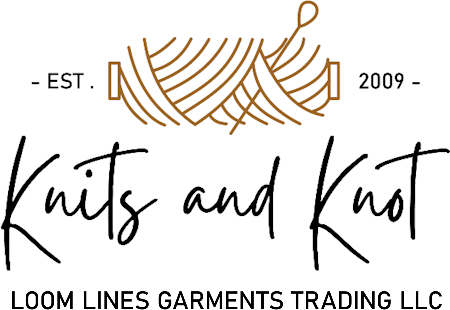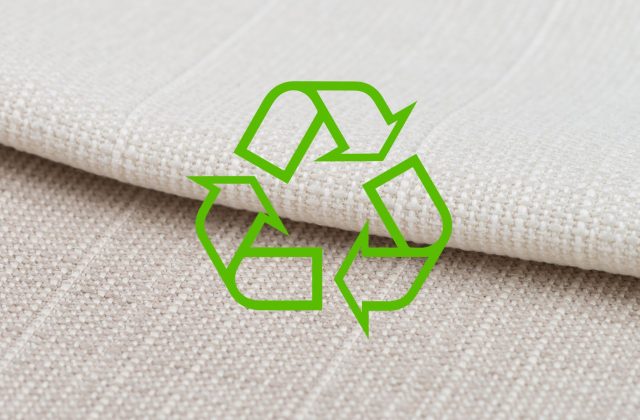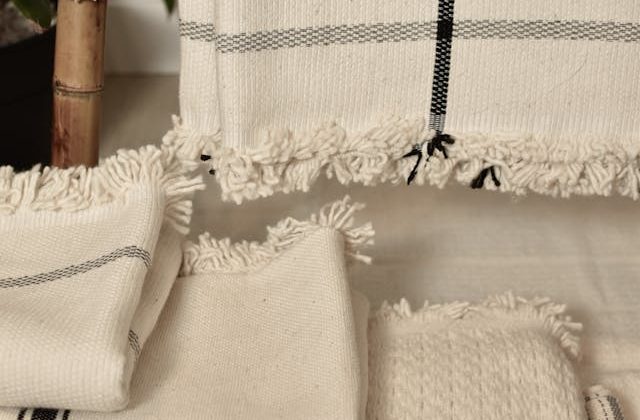Sustainability at Knitsandknot
Eco-Friendly Fabrics for a Greener Future
 At Knitsandknot, sustainability is at the core of our mission. Based in Dubai, UAE, we are proud to be a leading company in the uniform manufacturing industry, offering a wide range of sustainable fabrics designed to reduce environmental impact while delivering exceptional quality. We specialize in recycled fabrics, organic cotton fabrics, and bamboo cotton fabrics, each selected for its eco-friendly properties and superior performance.
At Knitsandknot, sustainability is at the core of our mission. Based in Dubai, UAE, we are proud to be a leading company in the uniform manufacturing industry, offering a wide range of sustainable fabrics designed to reduce environmental impact while delivering exceptional quality. We specialize in recycled fabrics, organic cotton fabrics, and bamboo cotton fabrics, each selected for its eco-friendly properties and superior performance.
Why Sustainable Fabrics Matter
As global awareness of environmental issues grows, choosing sustainable fabrics is no longer optional — it’s essential. At Knitsandknot, we are committed to offering fabrics that conserve natural resources, reduce waste, and contribute to a more sustainable future. Our materials, including recycled fabrics and organic cotton fabrics, help reduce the need for harmful chemicals and non-renewable resources, ensuring that your uniforms are both eco-conscious and comfortable.
Benefits of Our Eco-Friendly Fabrics
- By utilizing post-consumer and post-industrial waste, recycled fabrics help minimize landfill waste and promote a circular economy.
- Grown without synthetic pesticides and fertilizers, organic cotton fabrics are soft, breathable, and free from harmful chemicals, making them ideal for sensitive skin.
- Known for its natural antibacterial properties, bamboo cotton fabric is not only sustainable but also highly durable, breathable, and biodegradable.
Types of Sustainable Products
As consumers become more eco-conscious, the demand for sustainable products continues to rise. In the textile and fashion industries, three key materials stand out for their environmental benefits: recycled fabrics, organic cotton fabrics, and bamboo cotton fabrics. Below, we explore each type and why they matter.
Versatility and Use of Our Sustainable Fabrics
Our eco-friendly fabrics are perfect for a wide range of applications, from high-performance uniforms and corporate apparel to hospitality wear and casual fashion. These fabrics provide the durability and comfort required for daily wear, all while supporting a healthier planet.
At Knitsandknot, we believe in making a positive environmental impact through the fabrics we create. Our commitment to sustainable fabrics ensures that every stitch helps shape a greener future. Join us in revolutionizing the uniform industry and making the world a more sustainable place, one fabric at a time.
Frequently Asked Questions
Sustainable clothing is clothing made in ways that are kind to the environment and people. It involves using eco-friendly materials, like organic cotton or recycled fabrics, and ensuring that the production process minimizes waste and pollution. Sustainable clothing also means that the workers making the clothes are treated fairly and work in safe conditions. This approach helps protect the planet and supports ethical practices in the fashion industry.
A sustainable material for clothing is one that sourced and manufactured in environmentally friendly ways, has a low impact on the planet and promotes sustainability in fashion. Examples include:
-
Organic Cotton: Grown without harmful pesticides and chemicals.
-
Bamboo: Grows quickly and doesn’t require much water or pesticides.
-
Recycled Polyester: Made from recycled plastic bottles, reducing waste.
-
Hemp: Requires little water and no pesticides to grow.
-
Tencel (Lyocell): Made from sustainably harvested wood pulp and produced with less waste and water.
Organic cotton is generally considered to be the most sustainable fabric. Cotton fibres used to manufacture organic cotton are grown without harmful pesticides or synthetic fertilizers, which makes it better for the environment and safer for the farmers. It also uses less water and energy compared to conventional cotton. This makes organic cotton a top choice for eco-friendly clothing.




